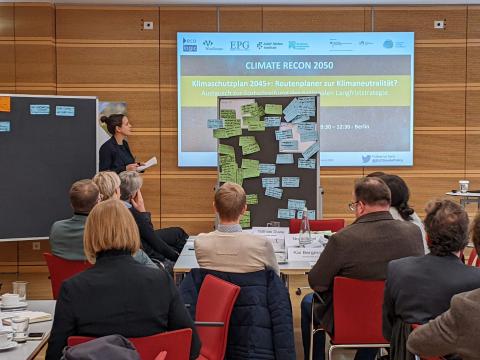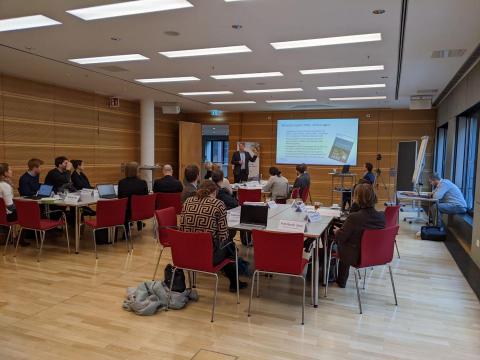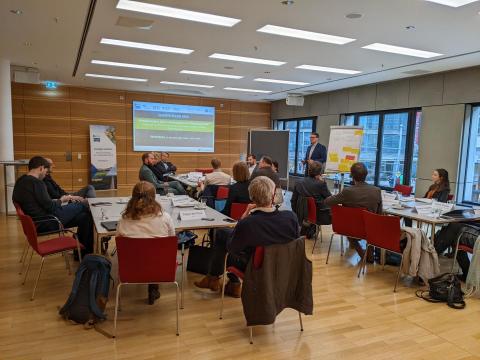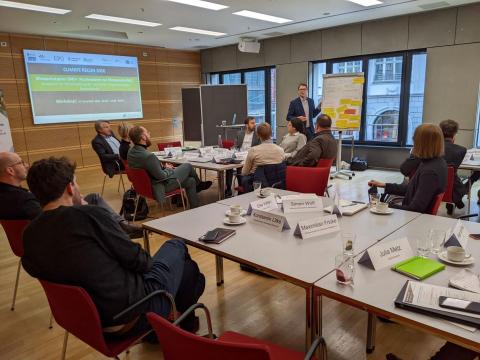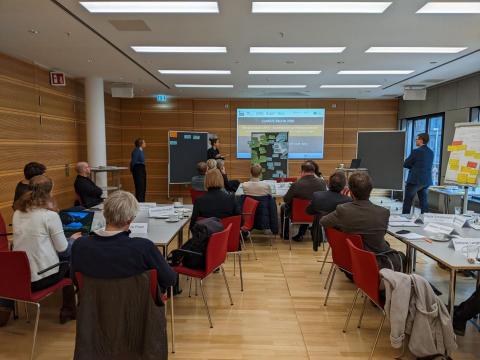Workshop: The German Climate Protection Plan 2045: On our way to climate neutrality?
The Federal Republic of Germany aims to achieve a climate-neutral society by 2045. This is legally binding according to the Federal Climate Protection Act.
The existing Climate Protection Plan (KSP) 2050 was already adopted in November 2016 and is outdated in various respects. An update and continuation is planned in principle, but not yet decided. A well thought-out, implementable long-term strategy for Germany can make a decisive contribution to ensuring that the transformation to a climate-friendly society succeeds. The current government has declared the achievement of climate targets to be a central task, but in the context of the energy crisis, among other things, it must also give greater consideration to energy security issues at present.
In the context of the political uncertainties that have characterized the experience of the past three years, the question arises as to what function the climate protection plan can and should have in Germany. At what points could an updated plan decisively guide the climate protection efforts of the government but also of other actors? What information does the plan need to contain in order to have this effect? How can public and stakeholder participation provide constructive impetus for the 2050 Climate Action Plan? These questions were discussed in an in-person workshop in Berlin with stakeholders from academia, the economy and civil society.
The first part of the event looked at the function and the contents of an updated long term strategy, while the second part explored ways to engage with stakeholders.
The discussion took place in coordination with the Federal Ministry of Economics and Climate Protection (BMWK), which is in charge of a possible update of the plan. The event was part of the project "Climate Recon 2050", which is funded by the European Climate Initiative (EUKI).
Find more information on European long-term climate strategies and their role in achieving climate neutrality in this report.
